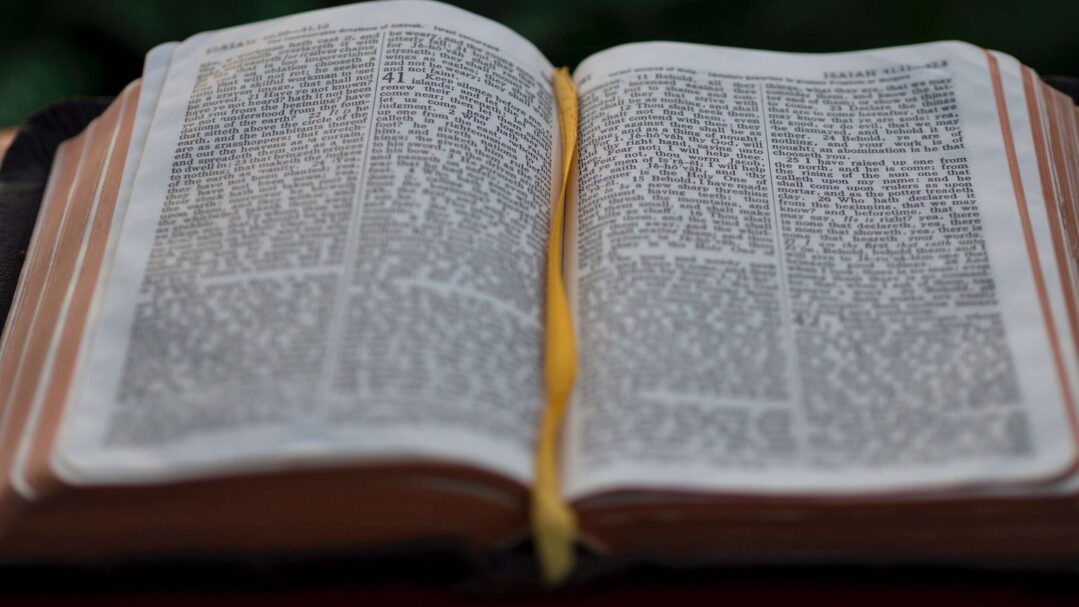In his indicting book, The Color of Compromise (Grand Rapids, MI: Zondervan, 2019), Jemar Tisby unpacks how racism has maintained such a foothold among Christians throughout American history. As a historian, he traces the thread of racism from the origins of slavery all the way to present day churches. It’s a sobering read, particularly for white Christians. It leaves us with many questions. How did this happen? How did it continue for so long? The Bible was used to support the cause of both abolitionists and slavery advocates. The Bible didn’t exactly condemn slavery, and in many parts spoke directly to slavery. Tisby writes,
“The abolitionist claims were mostly met with skepticism because they advanced arguments based on the “spirit” rather than the “letter” of the law. Even when the abolitionists made their case from the Bible, they were criticized because they were not able to cite a specific passage that explicitly condemned slavery. Instead, they had to argue from broader principles.” (84)
Even today, when we talk about racism and how to heal from its effects, we often argue from the “spirit” rather than the “letter.” This leads some to maintain that preaching the gospel alone will suffice.
But what about churches, like so many in the South, who preached the gospel while refusing membership to black people? These stories don’t come from a by-gone era. They come from churches that still have these people on their membership rosters, perhaps even in leadership. They come from the mouths of people who also sang about the blood of Jesus covering their sins. The same mouth that condemned any notion of integration is also the mouth that invited neighbors to VBS or gave to the Lottie Moon Christmas offering. How could churches be about the Great Commission overseas but against the Great Commission in their schools? How could people not discern the difference between the “spirit of the law” and the “letter of the law”?
I would argue that one of the causes was a lack of Bible literacy.
Bible teacher Jen Wilkin often says that the Bible literacy crisis in our churches is because people in the pews don’t have a “firsthand knowledge of the text.” We know a lot about the Bible but don’t actually know what it says. This is how people can argue that the curse of Ham is the basis for racial inferiority with a straight face. The lie that one ethnicity has less value than another ethnicity is owing to the fact that over time people heard that argument enough they believed it. It sounded plausible because they had likely never read the text to begin with. And without an understanding of the text, what sounds plausible prevails, especially if what sounds plausible is culturally acceptable.
Perhaps you’ve come this far and said, “What do you mean we don’t know our Bibles? I know my Bible. I’ve been in church my entire life.” Fair enough. You may have spent your entire life under the preaching of the word. But I fear there are many people in churches who sit under preaching but have only surface-level familiarity with the Scriptures. The South was filled with people like this at the height of the Jim Crow era. What about us?
Let’s do a case study. Have you ever read the book of Judges? What about the minor prophets? When you read a Bible in a year plan, how far do you get? There’s no judgment here for not completing the plan, but the fact that many don’t helps explain why we are where we are. We are in need of a comprehensive understanding of the entire Bible. We need the entire story of Scripture explained to us. We need to understand genre and be given literacy tools to understand the text for ourselves. We need the Old and New Testaments—read in their entirety. We often think of Bible reading as our own personal devotional time. And it is certainly for our own growth. But we are also joined to a body of believers (the Church) and humanity as a whole. Everyone benefits when we know our Bibles.
What would have happened sixty years ago if Christians were committed to Bible literacy in their churches? Would more have spoken up when racism found a home in the pews? I hope so. Bible literacy instills confidence. When we know our Bibles, we are able to discern truth from error, so that even if someone quotes Scripture out of context, we can point to the broader story of Scripture as our guide. When we know our Bibles, we can discern the “spirit of the law” even as people claim the “letter of the law” makes their case. Of course, many did cry foul when people used Scripture to argue for racism. But the larger Christian witness when it came to racism was silence. This, too, tells a story about the Bible’s truthfulness.
So where do we go from here? There is a renewed resolve towards Bible literacy and Christian education in our churches, and that is something to celebrate. But we must keep working towards literacy in our churches. When we know our Bibles—from beginning to end—we’re able to discern how God is working in the world, why he is working in the world, and how certain verses fit within the larger biblical framework. Without Bible literacy, we’re left taking things at face value rather than understanding the spirit of the law.
The fact that we still struggle in our churches to dismantle prejudice shows that we still have work to do with regards to Bible literacy. But we’re getting there. And by God’s grace, I pray that as we know our Bible, and the God who authored it, we won’t repeat the sins of our fathers and mothers again.
Prayer Requests:
- Pray for a desire for Bible literacy in churches and in homes, and that fruit would emerge from this effort.
- Pray for discernment in understanding the difference between the “spirit of the law” and the “letter of the law.” Pray that men and women would know the whole counsel of God so they could discern truth from error.
- Pray that our love for the Word would spill over into love for our brothers and sisters in Christ.












